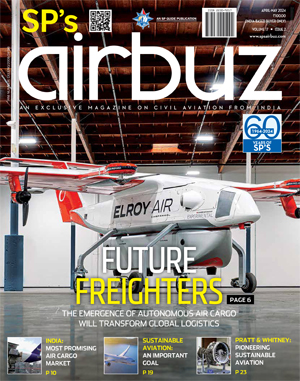New Study Confirms that Power-to-Liquids are the Best Option for Timely and Substantial Reduction of Aviation's Climate Impact

Deutsche Aircraft commissioned LBST to compile a comprehensive study comparing the economic and environmental performance of Liquefied Hydrogen (LH2) and Power-to-Liquids (PtL) in aviation. The study is focused on domestic production of electricity-based Sustainable Aviation Fuels (e-SAF) in North America and Europe, while also taking North Africa and the Middle East into account as export regions. The results complement concept studies at aircraft level with the fuel supply perspective of Sustainable Aviation Fuels.
Results of the study highlight that LH2 has the potential to undercut PtL production costs if there are higher demands from airlines. Fuel production costs for PtL and LH2 show similar orders of magnitude for small-scale applications such as regional airports. While LH2 can offer cost advantages over PtL at scale due to efficiency and liquefaction economics, it requires significant infrastructure investments and novel aircraft technologies. PtL, on the other hand, necessitates only marginal upgrades to existing infrastructure and aircraft systems.
According to the frameworks employed in the analysis, in terms of greenhouse gas emissions well-to-wake, PtL and LH2 show comparable results. Moreover, the use of PtL and LH2 demonstrate substantial benefits in terms of non-CO2 effects according to current scientific understanding.
The study also emphasises the importance of reducing certain aviation fuel constituents, such as aromatics and sulphur, to benefit both the climate and local air quality. For this reason, a dedicated fuel standard ("non-drop-in") with zero aromatics is currently under development to minimise non-CO2 effects and pollution. Due to the long lifetime of aircraft, the massive scale-up of drop-in SAF is a crucial element to mitigate the climate impact of the existing fleet. At the same time, aircraft and engine OEMs must continue their efforts into hydrogen research. Further hydrogen technology maturation at the aircraft level will enable a complete end-to-end view when comparing Liquefied Hydrogen and Power-to-Liquids in terms of operating costs and specific primary energy demand.
Patrick Schmidt, Senior Project Manager at LBST, commented on the research, stating, the real credit of our work is to take a genuinely comparative approach between LH2 and PtL as aviation fuel, allowing for an apples-for-apples comparison in terms of costs and greenhouse gas emissions. Our sensitivity analysis allowed us to build a cost corridor, giving a feel for the potential variance of future cost estimates. Thus, we hope to provide guidance to the whole aviation ecosystem and policymakers about the benefits, challenges, and needs for a timely, sustainable, and robust energy transition in aviation."
Sofia Capito, Managing Director LBST, added: "We have leveraged our extensive expertise in PtX techno-economics and life-cycle analysis to assess the supply side of Liquefied Hydrogen and Power-to-Liquids. This additional piece complements previous studies that we conducted on PtL and LH2. The relevance and topicality were reflected by a diverse stakeholder advisory group comprising industry actors, academia and environmental NGOs which shows that PtX is finally in the focus of aviation."
Dave Jackson, CEO at Deutsche Aircraft, emphasised the significance of objective information in decision-making. "The independent findings confirm our product strategy," he reflects. "In the short to mid-term, switching to 100% Sustainable Aviation Fuels, particularly Power-to-Liquids, is the best option to reduce environmental impact. Our D328ecoTM will be compatible with 100% non-drop-in Sustainable Aviation Fuels, offering substantial reductions in pollution and climate impact as quickly as possible. When it comes to hydrogen, we continue our research and technology efforts, knowing that to operate commercial hydrogen aircraft, the industry must take a giant leap forward regarding technology maturity, infrastructure, regulations and economics."
Regina Pouzolz, Director Sustainability at Deutsche Aircraft, says that, "The study delivered the essential puzzle piece to achieve an objective and holistic evaluation of technology and design options for our next aircraft. PtL is the best choice to minimise aviation's climate impact now and in the future."





